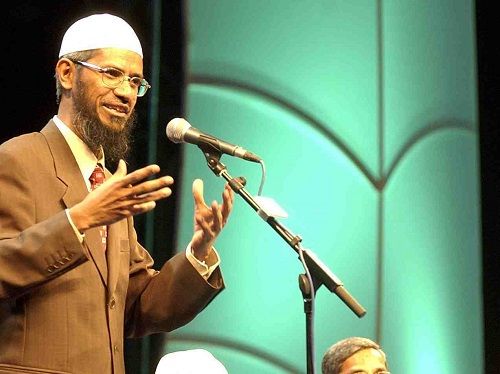Introduction to Islam
Islam is a Semitic religion, which has over one billion adherents all over the world. Islam means "submission to the will of God". Muslims accept the Qur’an, as the word of God revealed to His last and final prophet, Muhammad (peace be upon him). Islam states that Allah sent messengers and prophets throughout the ages with the message of Unity of God and accountability in the Hereafter. Islam thus makes it an article of faith to believe in all the earlier prophets, starting with Adam, and continuing with Noah, Abraham, Ishmael, Isaac, Jacob, Moses, David, John the Baptist and Jesus amongst many others (may peace be on them all).
The most Concise definition of God :
"Say: He is Allah, The One and Only. "Allah, the Eternal, Absolute. "He begets not, nor is He begotten. And there is none like unto Him." [Al-Qur’an 112:1-4]
The word ‘Assamad’ is difficult to translate. It means ‘absolute existence’, which can be attributed only to Allah (swt), all other existence being temporal or conditional. It also means that Allah (swt) is not dependent on any person or thing, but all persons and things are dependent on Him.
Surah Ikhlas- the touchstone of theology :
Surah Ikhlas (Chapter 112) of the Glorious Qur’an, is the touchstone of theology. ‘Theo’ in Greek means God and ‘logy’ means study. Thus Theology means study of God and to Muslims this four line definition of Almighty God serves as the touchstone of the study of God. Any candidate to divinity must be subjected to this ‘acid test’. Since the attributes of Allah given in this chapter are unique, false gods and pretenders to divinity can be easily dismissed using these verses.
What does Islam say about 'god-men' :
India is often called the land of ‘god-men’. This is due to the abundance of so-called spiritual masters in India. Many of these ‘babas’ and ‘saints’ have a large following in many countries. Islam abhors deification of any human being. To understand the Islamic stand towards such pretenders to divinity, let us analyze one such ‘god-man’, Osho Rajneesh.
Let us put this candidate, ‘Bhagwan’ Rajneesh, to the test of Surah Ikhlas, the touchstone of theology:
- 1. The first criterion is "Say, He is Allah, one and only". Is Rajneesh one and only? No! Rajneesh was one among the multitude of ‘spiritual teachers’ produced by India. Some disciples of Rajneesh might still hold that Rajneesh is one and only.
- 2. The second criterion is, ‘Allah is absolute and eternal’. We know from Rajneesh’s biography that he was suffering from diabetes, asthma, and chronic backache. He alleged that the U.S. Government gave him slow poison in prison. Imagine Almighty God being poisoned! Rajneesh was thus, neither absolute nor eternal.
- 3. The third criterion is ‘He begets not, nor is He begotten’. We know that Rajneesh was born in Jabalpur in India and had a mother as well as a father who later became his disciples.
In May 1981 he went to U.S.A. and established a town called ‘Rajneeshpuram’. He later fell foul of the West and was finally arrested and asked to leave the country. He came back to India and started a commune in Pune which is now known as the ‘Osho’ commune. He died in 1990. The followers of Osho Rajneesh believe that he is Almighty God. At the ‘Osho commune’ in Pune one can find the following epitaph on his tombstone:
"Osho – never born, never died; only visited the planet Earth between 11th December 1931 to 19th January 1990." They forget to mention that he was not granted visa for 21 countries of the world. Can a person ever imagine ‘God’ visiting the earth, and requiring a visa to enter a country! The Archbishop of Greece said that if Rajneesh had not been deported, they would have burnt his house and those of his disciples
4. The fourth test, which is the most stringent is, "There is none like unto Him". The moment you can imagine or compare ‘God’ to anything, then he (the candidate to divinity) is not God. It is not possible to conjure up a mental picture of the One True God. We know that Rajneesh was a human being, having two eyes, two ears, a nose, a mouth and a white flowing beard. Photographs and posters of Rajneesh are available in plenty. The moment you can imagine or draw a mental picture of an entity, then that entity is not God.
Many are tempted to make anthropomorphic comparisons of God. Take for instance, Arnold Schwarzenegger, the famous body builder and Hollywood actor, who won the title of ‘Mr. Universe’, the strongest man in the world. Let us suppose that someone says that Almighty God is a thousand times stronger than Arnold Schwarzenegger. The moment you can compare any entity to God, whether the comparison is to Schwarzenegger or to King Kong, whether it is a thousand times or a million times stronger, it fails the Qur’anic criterion, "There is none like unto Him". Thus, the ‘acid test’ cannot be passed by anyone except the One True God. The following verse of the Glorious Qur’an conveys a similar message:
"No vision can grasp Him But His grasp is over All vision: He is Above all comprehension, Yet is acquainted with all things." [Al-Qur'an 6:103]
By what name do we call God ?
The Muslims prefer calling the Supreme Creator, Allah, instead of by the English word ‘God’. The Arabic word, ‘Allah’, is pure and unique, unlike the English word ‘God’, which can be played around with.
If you add ‘s’ to the word God, it becomes ‘Gods’, that is the plural of God. Allah is one and singular, there is no plural of Allah. If you add ‘dess’ to the word God, it becomes ‘Goddess’ that is a female God. There is nothing like male Allah or female Allah. Allah has no gender. If you add the word ‘father’ to ‘God’ it becomes ‘God-father’. God-father means someone who is a guardian. There is no word like ‘Allah-Abba’ or ‘Allah-father’. If you add the word ‘mother’ to ‘God’, it becomes ‘God-mother’. There is nothing like ‘Allah-Ammi’, or ‘Allah-mother’ in Islam. Allah is a unique word. If you prefix tin before the word God, it becomes tin-God i.e., fake God. Allah is a unique word, which does not conjure up any mental picture nor can it be played around with. Therefore the Muslims prefer using the Arabic word ‘Allah’ for the Almighty. Sometimes, however, while speaking to the non-Muslims we may have to use the inappropriate word God, for Allah. Since the intended audience of this article is general in nature, consisting of both Muslims as well as non-Muslims, I have used the word God instead of Allah in several places in this article.
God does not become a human being: God does not take human form:
Some may argue that God does not become a human being but only takes a human form. If God only takes a human form but does not become a human being, He should not possess any human qualities. We know that all the ‘God-men’, have human qualities and failings. They have all the human needs such as the need to eat, sleep, etc.
The worship of God in human form is therefore a logical fallacy and should be abhorred in all its forms and manifestations.
That is the reason why the Qur’an speaks against all forms of anthropomorphism. The Glorious Qur’an says in the following verse:
"There is nothing whatever like unto Him." [Al-Qur'an 42:11]
God does not perform ungodly acts :
The attributes of Almighty God preclude any evil since God is the source of justice, mercy and truth. God can never be thought of as doing an ungodly act. Hence we cannot imagine God telling a lie, being unjust, making a mistake, forgetting things, or having any such human failings. Similarly God can do injustice if He chooses to, but He will never do it because being unjust is an ungodly act.
The Qur’an says:
"Allah is never unjust In the least degree." [Al-Qur'an 4:40]
God can be unjust if He chooses to be so, but the moment God does injustice, He ceases to be God.
God does not make mistakes
God can make mistakes if He wants to, but He does not make mistakes because making a mistake is an ungodly act. The Qur’an says:
"…my Lord never errs." [Holy Qur'an 20:52]
The moment God makes a mistake, he ceases to be God.
God does not forget
God can forget if He wants to. But God does not forget anything because forgetting is an ungodly act, which reeks of human limitations and failings. The Qur’an says: "…my Lord never errs, nor forgets." [Al-Qur’an 20:52]
God Only Perform Godly Acts :-
The Islamic concept of God is that God has power over all things. The Qur’an says in several places (Al -Qur’an 2:106; 2:109; 2:284; 3:29; 16:77; and 35:1):
"For verily Allah has power over all things"
Further, the Glorious Qur’an says:
"Allah is the doer of all that He intends." [Al-Qura'n 85:16]
We must keep in mind that Allah intends only Godly acts and not ungodly acts.
PHILOSOPHY OF ANTHROPOMORPHISM Many religions at some point believe, directly or indirectly, in the philosophy of anthropomorphism i.e. God becoming a human. Their contention is that Almighty God is so pure and holy that He is unaware of the hardships, shortcomings and feelings of human beings. In order to set the rules for human beings, He came down to earth as a human. This deceptive logic has fooled countless millions through the ages. Let us now analyze this argument and see if it stands to reason.
The Creator prepares the instruction manual
Suppose I manufacture a video cassette recorder (VCR). Do I have to become a VCR to know what is good or what is bad for the VCR? What do I do? I write an instruction manual: "In order to watch a video cassette, insert the cassette and press the play button. In order to stop, press the stop button. If you want to fast forward press the FF button. Do not drop it from a height or it will get damaged. Do not immerse it in water or it will get spoilt". I write an instruction manual that lists the various do’s and don’ts for the machine.
Holy Quran is the Instruction Manual for the Human Being :-
Similarly, our Lord and Creator Allah (swt) need not take human form to know what is good or bad for the human being. He chooses to reveal the instruction manual. The last and final instruction manual of the human beings is the Glorious Qur’an. The ‘dos’ and ‘don’ts’ for the human beings are mentioned in the Qur’an. If you allow me to compare human beings with machines, I would say humans are more complicated than the most complex machines in the world. Even the most advanced computers, which are extremely complex, are pale in comparison to the myriad physical, psychological, genetic and social factors that affect individual and collective human life. The more advanced the machine, greater is the need for its instruction manual. By the same logic, don’t human beings require an instruction manual by which to govern their own lives?
Allah Chooses Messengers:-
Allah (swt) need not come down personally for giving the instruction manual. He chooses a man amongst men to deliver the message and communicates with him at a higher level through the medium of revelations. Such chosen men are called messengers and prophets of God.
Some people are ‘blind’ and ‘deaf’:
Despite the absurdity of the philosophy of anthropomorphism, followers of many religions believe in and preach it to others. Is it not an insult to human intelligence and to the Creator who gave us this intelligence? Such people are truly ‘deaf’ and ‘blind’ despite the faculty of hearing and sight given to them by Allah. The Qur’an says:
"Deaf, dumb, and blind, They will not return (to the path)." [Al-Qur'an 2:18]
The Bible gives a similar message in the Gospel of Matthew:
Attributes of God :-
The Qur’an says:
To Allah belong the most beautiful names:
"Say: Call upon Allah, or Call upon Rahman: By whatever name you call Upon Him, (it is well): For to Him belong The Most Beautiful Names."
[Al-Qur'an 17:110]
A similar message regarding the beautiful names of Allah (swt) is repeated in the Qur’an in Surah Al-A’raf (7:180), in Surah Taha (20:8) and in Surah Al-Hashr (59:24).
The Qur’an gives no less than ninety-nine different attributes to Almighty Allah. The Qur’an refers to Allah as Ar-Rahman (Most Gracious), Ar-Raheem (Most Merciful) and Al-Hakeem (All Wise) among many other names. You can call Allah by any name but that name should be beautiful and should not conjure up a mental picture.
Each Attribute of God is Unique And Possessed by Him Alone :-
Not only does God possess unique attributes, but also each attribute of Almighty God is sufficient to identify Him. I shall clarify this point in detail. Let us take an example of a famous personality, say Neil Armstrong. Neil Armstrong is an astronaut. The attribute of being an astronaut possessed by Neil Armstrong is correct but not unique to Neil Armstrong alone. So when one asks, who is an astronaut? The answer is, there are hundreds of people in the world who are astronauts. Neil Armstrong is an American. The attribute of being American possessed by Neil Armstrong is correct but not sufficient to identify him. So when one asks, who is an American? The answer is, there are millions of people who are American. To identify the person uniquely we must look for a unique attribute possessed by none except that person. For example, Neil Armstrong was the first human to set foot on the moon. So when one asks, who was the first man to set foot on the moon, the answer is only one, i.e. Neil Armstrong. Similarly the attribute of Almighty God should be unique. If I say God is the constructor of buildings, it is possible and true, but it is not unique. Thousands of people can construct a building. But each attribute of Allah is unique and points to none but Allah. For example, God is the creator of the universe. If someone asks who is the creator of the universe, the answer is only one, i.e. Almighty God is the Ultimate Creator. Similarly, following are some of the many unique attributes possessed by none other than the Creator of the universe, Almighty Allah:
"Ar-Raheem", the Most Merciful
"Ar-Rahman", the Most Gracious
"Al-Hakeem", the Most Wise
So when one asks, "Who is ‘Ar-Raheem’, (the Most Merciful)?", there can only be one answer: "Almighty Allah".
One attribute of God should not contradict with other attributes :-
Besides the attribute being unique, it should not contradict other attributes. To continue with the earlier example, suppose somebody says that Neil Armstrong is an American astronaut who was the first human to set foot on the moon and was an Indian. The attribute possessed by Neil Armstrong of being the first man to set foot on the moon, is correct. But its associated quality of being an Indian, is false. Similarly if someone says that God is the Creator of the Universe and has one head, two hands, two feet, etc., the attribute (Creator of the Universe) is correct but the associated quality (in the form of human being) is wrong and false.
All Attributes should point to the One and Same God :-
Since there is only one God, all the attributes should point to one and the same God. To say that Neil Armstrong was an American astronaut who first set foot on the moon, but he was born in 1971 is wrong. Both these unique qualities belong to one and the same person, i.e. Neil Armstrong. Similarly to say that the Creator of the universe is one God and the Cherisher is another God is absurd because God possesses all these attributes combined together.
Unity of GodSome polytheists argue by saying that the existence of more than one God is not illogical. Let us point out to them that if there were more than one God, they would dispute with one another, each god trying to fulfill his will against the will of the other gods. This can be seen in the mythology of the polytheistic and pantheistic religions. If a ‘God’ is defeated or unable to defeat the others, he is surely not the one true God. Also popular among polytheistic religions is the idea of many Gods, each having different responsibilities. Each one would be responsible for a part of man’s existence e.g. a Sun-God, a Rain-God, etc. This indicates that one ‘God’ is incompetent of certain acts and moreover he is also ignorant of the other Gods’ powers, duties, functions and responsibilities. There cannot be an ignorant and incapable God. If there were more than one God it would surely lead to confusion, disorder, chaos and destruction in the universe. But the universe is in complete harmony. The Glorious Qur’an says:
"If there were, in the heavens And the earth, other gods Besides Allah, there would Have been confusion in both! But glory to Allah, The Lord of the Throne: (High is He) above What they attribute to Him!"
[Al-Qur’an 21:22]
If there were more than one God, they would have taken away what they created, the Qur'an says :
"No son did Allah beget, Nor is there any god Along with Him: (if there were Many gods), behold, each god Would have taken away What he had created, And some would have Lorded it over others! Glory to Allah! (He is free) From the (sort of) things They attribute to Him!"
[Al-Qur’an 23:91]
Thus the existence of one True, Unique, Supreme, Almighty God, is the only logical concept of God.




















